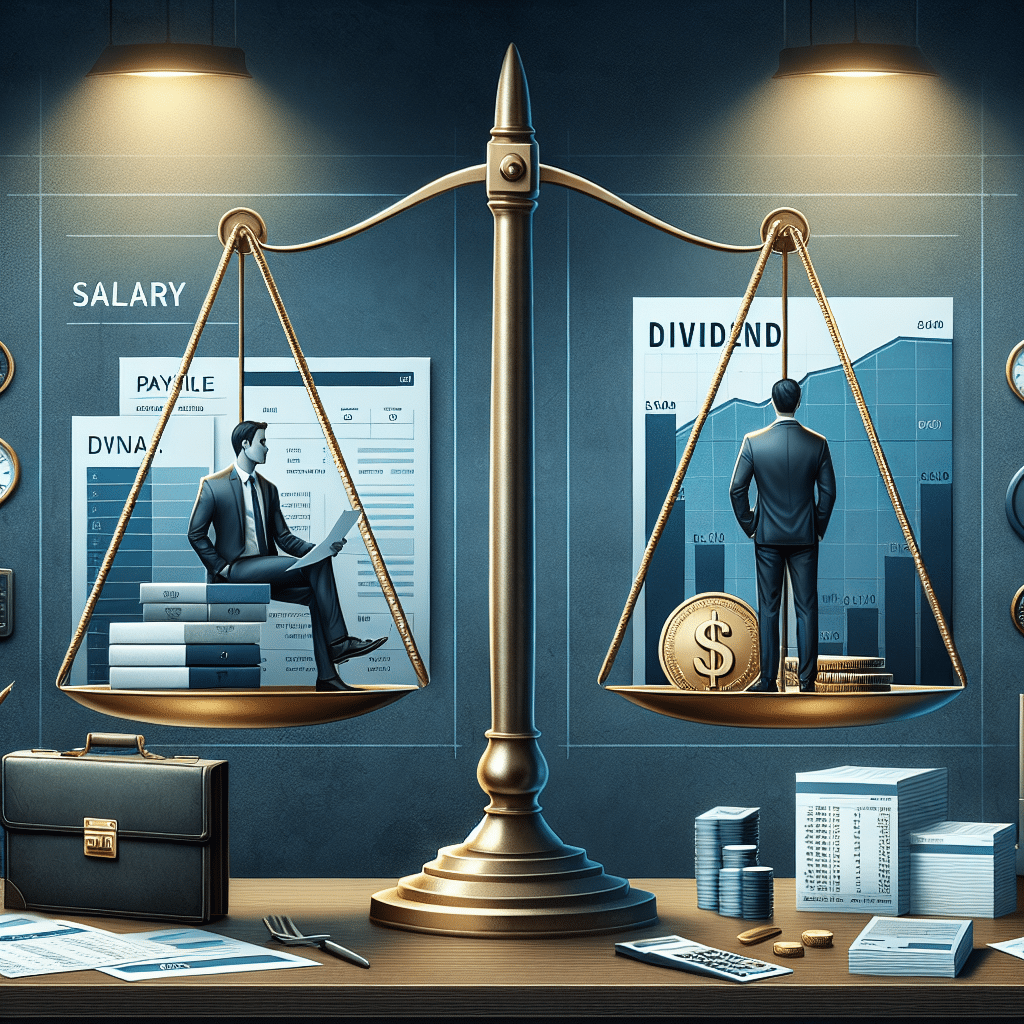Salary vs Dividend: Best Way to Pay Yourself as Owner
If you’re a business owner, one big question you’ve probably asked yourself is: “Should I pay myself a salary or take dividends?” It’s an important decision. The answer affects your taxes, cash flow, and even how your business is perceived.
Let’s break it down together in simple terms so you can decide what works best for you.
What’s the Difference Between Salary and Dividends?
Think of it this way: Salary is like a paycheck, and dividends are like a reward.
When you pay yourself a salary, you’re treating yourself like an employee. Taxes like income tax, CPP (or Social Security), and sometimes EI (Employment Insurance) apply. You’re on payroll, just like your staff.
Dividends, on the other hand, are paid out of your company’s after-tax profits. No CPP contributions. No standard payroll deductions. It’s more like a share of the profit you’ve earned as a shareholder, not a worker.
The Benefits of Paying Yourself a Salary
Paying yourself a salary can have some clear advantages:
- You contribute to CPP: This helps build your retirement benefits.
- You qualify for personal credit: Banks like regular income when you apply for a mortgage or loan.
- You get RRSP room: Salary helps create more contribution room for your Retirement Savings Plan.
- You show a consistent income: That’s helpful when applying for government benefits like maternity/paternity leave or subsidies.
Let’s say you’re saving for a home. A regular salary on your tax return makes you look financially stable. Lenders like that.
Why Some Owners Choose Dividends Instead
Dividends can be more tax-efficient — depending on your income level and location. Here’s why owners sometimes prefer it:
- You pay less in payroll taxes: No CPP, EI, or employer costs.
- Simple paperwork: No need to run regular payroll or file T4s.
- You save on accounting fees: Fewer deductions mean fewer calculations.
Imagine your business had a great year. You could take out profits as dividends and avoid the hassle of payroll. That’s appealing if you want to keep your operations lean.
But Wait — There Are Downsides Too
No option is perfect.
With salary, you have:
- Higher payroll taxes
- More paperwork
- Accounting costs from T4 reporting
And with dividends, keep in mind:
- No CPP = less retirement savings
- No EI = no unemployment benefits
- No RRSP room unless you take a salary
Also, dividend income might not look as “stable” to banks. That could affect your chance of getting a mortgage or financing.
Can You Combine the Two?
Yes! A lot of owners do both. This strategy offers the best of both worlds:
- Take a small salary to qualify for CPP and RRSP room
- Top it up with dividends to reduce tax and paperwork
Let’s say you pay yourself a $50,000 salary to keep your registered savings happy. Then, at year-end, you add a $20,000 dividend to share in your company’s profit. That way, you stay in control of how and when you’re taxed.
How Do You Decide What’s Best?
Start with these questions:
- Do I need to show income for a mortgage or loan?
- Do I want to save for retirement through RRSPs?
- Do I plan on collecting government benefits?
- Is saving on payroll taxes more important right now?
- Am I okay handling the extra paperwork that comes with salary?
Your answers will likely point you toward one option or the other — or a combination of both.
Final Thoughts: Think Long-Term
Choosing between salary and dividend isn’t just about today’s tax bill. It’s about your goals — for your business, your future, and your family.
There’s no universal “right” answer. That’s why many successful owners sit down with an accountant each year to review their options.
If you’re still unsure, don’t stress. You’re not alone. Most business owners tweak their approach over time. Life changes, and your business changes too.
So, ask yourself: Do you want predictable income now, or are you optimizing for lower taxes later? The answer will shape how you pay yourself — and help keep your business and finances on track.
Need help running the numbers? A qualified accountant or tax advisor can help you build the perfect plan based on your income, goals, and location.

